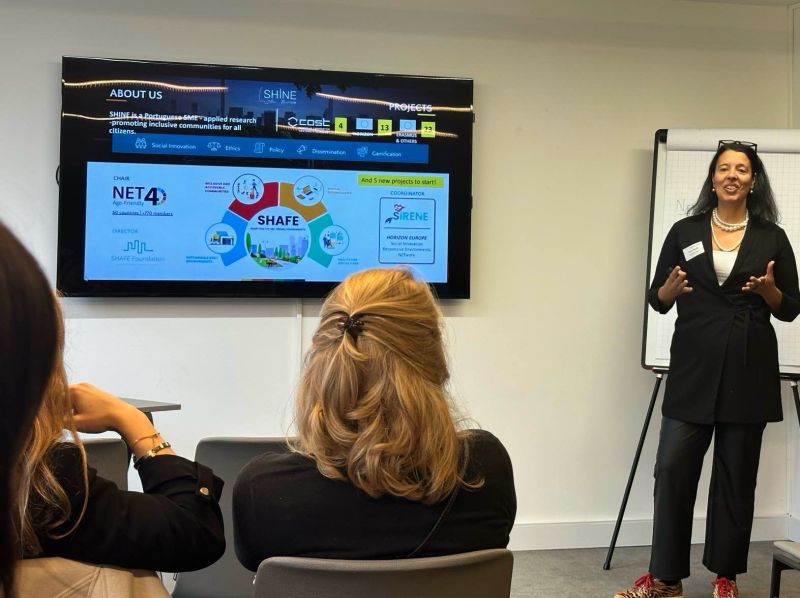SHINE 2Europe participated in the EOSC4Cancer Stakeholder Workshop on 2nd December, represented by its CEO, Carina Dantas, to present innovative approaches to addressing ethical challenges in cancer data sharing. The event convened over 30 stakeholders and partners in Brussels, both in person and online, as part of the Roadmap Consultation Workshop on the Cancer Data Space initiative.
Carina Dantas delivered a compelling presentation titled “Clustering Biases – The Role of Stakeholders and Data Platforms,” showcasing SHINE’s pivotal contributions to cancer research through key European projects such as RadioVal. Her presentation highlighted SHINE’s work on social innovation and multi-stakeholder engagement, underlining the critical importance of inclusivity in advancing cancer research.
RadioVal exemplifies these innovative efforts. SHINE leads the multi-stakeholder engagement and social innovation aspects of the project, fostering collaboration among patients, healthcare professionals, AI developers, ethicists, and policymakers. During her presentation, Carina addressed pressing challenges in AI, including trust and validation issues, advocating for robust real-world validation processes to bridge gaps between AI models, healthcare providers, and patients.
The workshop facilitated dynamic exchanges with a broad spectrum of stakeholders, including patients, industry leaders, policymakers, and researchers. Carina participated in a session alongside distinguished experts such as Marco Morelli, Peter Gordebeke, David Marshall, Chloé Mayeur, Oriana Sousa, and Tamara Milagre. Their insights enriched discussions on cancer data sharing, ethics, and the development of collaborative projects.
The event’s collaborative atmosphere highlighted the importance of integrating diverse perspectives to shape the Cancer Data Space Roadmap. Carina’s contributions underscored SHINE 2Europe’s commitment to driving socially responsible and ethically grounded innovation in cancer research, demonstrating how inclusive approaches can accelerate progress in the fight against cancer.
